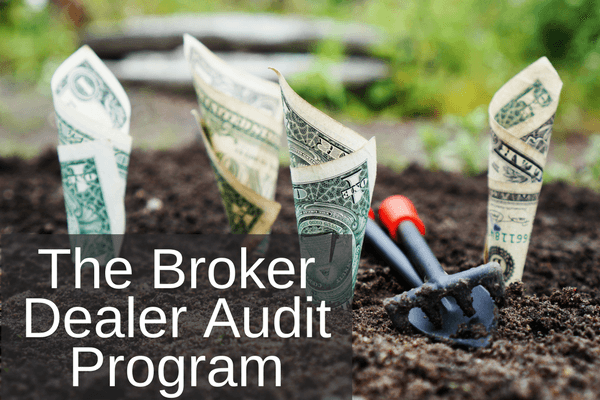The purpose of performing broker dealer audits and requiring regular reporting is to verify that broker dealers are compliant with regulations intended to protect investors. The broker should implement consistent internal investigations to assure this goal, but audits are the primary tool used by external agencies to verify these practices are in place. Similarly, external inspections are used to ensure that the auditors themselves are adhering to rules and regulations developed by the SEC and other regulatory boards.
Preparing for the Broker Dealer Audit Program
Assuming that company employees have followed the regulations, the key to preparation for an audit is to maintain accurate documentation. If it is not provided to you in advance, you can use the request list from previous audits, or request such a list from the auditors in advance of the audit. This will include up-to-date accounting information such as receivables, expenses, and company logs, among other items. An independent CPA will be able to advise you on what information to have available, and you can implement a regular internal inspection to monitor and verify the information between audits. It is also important to have a working understanding of SEC rules and accepted accounting procedures.
Common Deficiencies in Broker Dealer Audits
Inspections of broker audits often reveal a similar list of deficiencies and inadequacies on the part of auditors. For example, internal audits should not be performed by your company’s accounting firm. Other common problems include:
- Improper auditing of revenue recognition
- Improper auditing of receivables and payables
- Improper evaluation of adequacy of financial statement disclosures
- Improper consideration of an entity’s going concern
- Insufficient inquiries and procedures related to compliance with exemption provisions
Rules and Objectives of Broker Dealer Audits
Annual audits must be performed by firms registered with the Public Company Accounting Oversight Board. The auditor cannot be the same as the firm which provides accounting services, or has other economic or operational ties to the broker dealer. The objective is to obtain an accurate and unbiased verification that the broker dealer is in compliance with– and reporting correctly to– the investors served by the broker.
Best Audit Preparation Practices for Broker Dealers
The best practice and preparation for annual broker dealer audits is to maintain regular and consistent internal checks and audits. Company employees should be trained in performing internal audits which can identify and isolate potential problems between annual external audits. With a complete set of internal controls in place, this self-checking system will provide you with the experience of meeting audit requirements, along with verifying the integrity and accuracy of your company’s accounting practices. An outside accounting firm can perform these checks, so long as the same firm does not perform the annual audits.
Audits will examine the level of compliance the broker dealer has to SEC and PCAOB rules and regulations. They are not intended to examine individual employee practices or performance. For that, you should investigate inconsistencies found during internal audits and regular accounting services. In fact, internal audits should serve as a verification process to ascertain that external audits go smoothly and exhibit full compliance.
Our broker dealer audit services include giving our clients guidance. If you have any questions about our broker dealer services, one of our CPAs would be happy to speak with you at (925) 933-2626 or, email us at info@ewallp.com.
